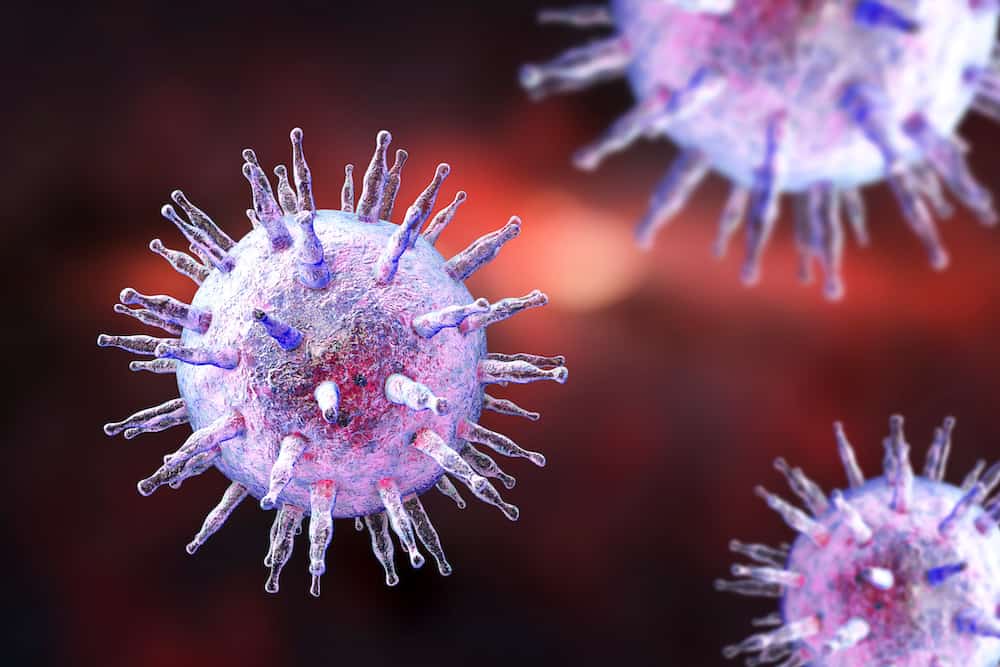What causes lymphoma cancer?

The cause of lymphoma depends on the type. As you will see, they have a few causes in common but differ in other elements.
Hodgkin lymphoma is a transformation of B-cells into a type of cell called Reed-Sternberg cell. These cells have two nuclei instead of one and have other characteristics on their own. The exact reason why B cells transform into Reed-Sternberg cells is not entirely understood. Similarly, Non-Hodgkin lymphoma usually develops in B cells, but around 15% of cases arise from T cells. Instead of an exact cause, many risk factors contribute to the development of both Hodgkin and non-Hodgkin lymphoma:
- Genetic susceptibility: Patients with Hodgkin lymphoma are likely to have a family history of the disease. There’s a genetic predisposition, and specific genes are involved, according to studies.
- Occupational risk factors: Certain occupations increase the risk of Hodgkin lymphoma, especially woodworking. Exposure to substances plays a significant role in these cases, probably contributing to the causes. Insecticides, herbicides, and other chemicals also lead to a higher risk of Non-Hodgkin lymphoma.
- Certain drugs and therapies: Patients under chemotherapy or radiation therapy can develop Hodgkin lymphoma after curing of their primary cancer. Phenytoin treatment can also lead to the development of this B-cell transformation
- Viral infections: Certain viruses apparently trigger susceptible cells to transform into Reed-Sternberg cells. That is especially the case of the Epstein-Barr virus or the infection with herpesvirus type 6 and Mycobacterium tuberculosis. Viral infections trigger both Hodgkin and non-Hodgkin lymphoma.
- Immunosuppression: Patients with a dysfunction of the immune system are more likely to trigger Hodgkin and Non-Hodgkin lymphoma. For example, patients with infection with HIV and those taking immunosuppressants after an organ transplant. It is also common in patients with congenital problems that lead to immunosuppression, such as Chédiak-Higashi syndrome or Klinefelter syndrome.
- Autoimmune problems: Certain autoimmune condition also leads to the development of Hodgkin lymphoma. This is particularly the case in celiac disease, systemic lupus erythematosus, and rheumatoid arthritis.
- Infection with Helicobacter pylori: This infection causes severe gastrointestinal problems and may lead to gastric cancer. It also increases the risk of Non-Hodgkin lymphoma.
- Chronic inflammation: Enduring chronic inflammation in organs or body tissues can lead to hyperplasia of reactive lymph nodes and Non-Hodgkin lymphoma.
